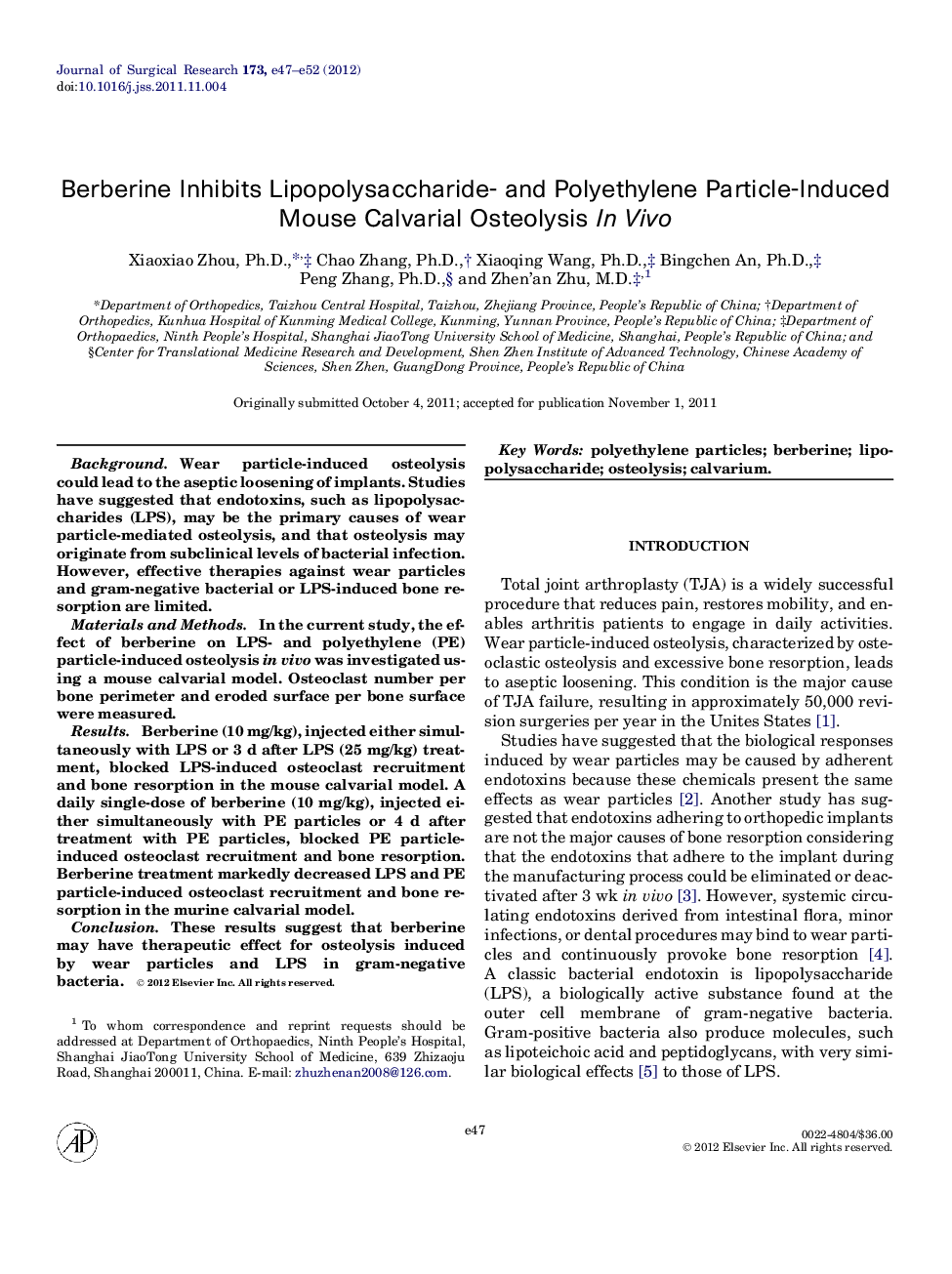| Article ID | Journal | Published Year | Pages | File Type |
|---|---|---|---|---|
| 4302102 | Journal of Surgical Research | 2012 | 6 Pages |
BackgroundWear particle-induced osteolysis could lead to the aseptic loosening of implants. Studies have suggested that endotoxins, such as lipopolysaccharides (LPS), may be the primary causes of wear particle-mediated osteolysis, and that osteolysis may originate from subclinical levels of bacterial infection. However, effective therapies against wear particles and gram-negative bacterial or LPS-induced bone resorption are limited.Materials and MethodsIn the current study, the effect of berberine on LPS- and polyethylene (PE) particle-induced osteolysis in vivo was investigated using a mouse calvarial model. Osteoclast number per bone perimeter and eroded surface per bone surface were measured.ResultsBerberine (10 mg/kg), injected either simultaneously with LPS or 3 d after LPS (25 mg/kg) treatment, blocked LPS-induced osteoclast recruitment and bone resorption in the mouse calvarial model. A daily single-dose of berberine (10 mg/kg), injected either simultaneously with PE particles or 4 d after treatment with PE particles, blocked PE particle-induced osteoclast recruitment and bone resorption. Berberine treatment markedly decreased LPS and PE particle-induced osteoclast recruitment and bone resorption in the murine calvarial model.ConclusionThese results suggest that berberine may have therapeutic effect for osteolysis induced by wear particles and LPS in gram-negative bacteria.
